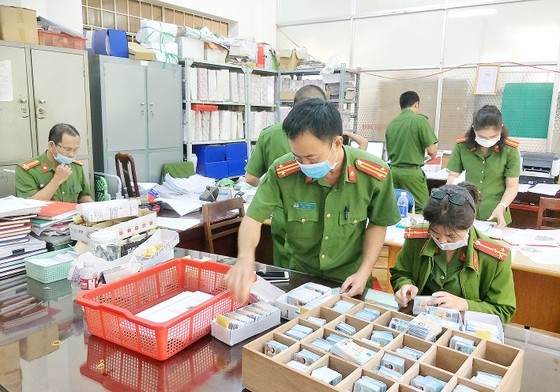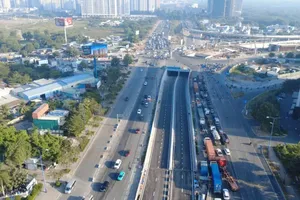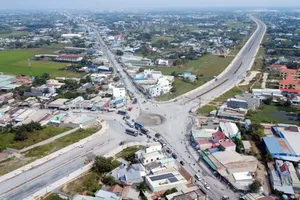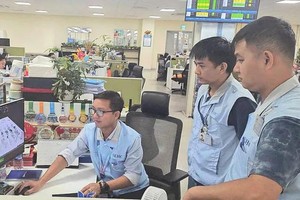
In a recent virtual meeting on implementing Project 06 held in Thai Nguyen Province, certain problems have been reported in the process of promoting digital transformation to serve citizens and businesses despite the strong determination of central and local state agencies.
Statistics from the Ministry of Information and Communications reveal that the current IT state of ministries and state agencies is not sufficient to implement Project 06. During the connection among these units to access the available formal e-identification database, only 6/20 units can satisfy the hardware demands (accounting for 30 percent). Merely 5/20 units can answer the requirements of the system to handle administrative procedures and 3/20 of necessary equipment for the one-station model at provincial level. Only 8/20 ministerial-level units can use the connection to the national population database and e-identification, e-authentication for 5 utility groups.
The maintenance of cyber space security and information safety for the use of the national population database as well as e-identification of 17/20 units fails to meet the demands. Only 37/62 provinces and municipalities can ensure a stable Internet connection for the implementation of Project 06, while the figure for an essential IT system to handle administrative procedures is merely 29/62 provinces and municipalities.
One typical explanation for this infrastructure weakness is that most localities are now hiring services or in need of buying new equipment to implement Project 06, which might take them a lot of time.
As to challenges in digital transformation in the healthcare, Head of the IT Authority under the Health Ministry Do Truong Duy stated that the process to clean data of citizens to issue a vaccination passport is in trouble. Many localities have not fulfilled their tasks although they can do this with ease. For example, by September 29, over 17 million of vaccine doses had been injected with no information updates at all.
Meanwhile, Head of the IT Authority under the Ministry of Labor, War Invalids and Social Affairs Do Chi Dung voiced that data cleaning and synchronization is key in interdisciplinary digital transformation. “When the Public Security Ministry issues a social security account for each citizen, it is unlikely that this account can be used for payment immediately as there is a need for data linkage between stage agencies and units”, said Mr. Dung.
After listening to opinions from all ministries, state agencies, and local authorities, Deputy Prime Minister Vu Duc Dam stressed that for complicated Project 06 to be successful, it is necessary to fulfill each specific goal and task.
He stated that for the five task groups with 17 contents to complete in the upcoming time, the local authorities must be more determined in steering them at the area they are in charge. They should also review legal documents that needs adjusting to implement this Project, especially issues in the regulation of residence registration fee collection, submission, management, and use.
At present, to create conditions to carry out the Residence Law in terms of not using household registration books after December 13, 2022, the Deputy Prime Minister proposed a dispatch to direct and instruct state departments and agencies not to ask for the book when performing administrative procedures. Instead, citizens will use their chip-based citizen ID cards.
The Government also assigned the Ministry of Justice to quickly finish installing the software to link the two administrative procedures of birth registration - permanent residence registration - issuance of health insurance cards for children under 6 years old and death registration - deletion of permanent residence status - funeral support. They will be then piloted in Hanoi, Can Tho City, Thai Nguyen Province and Ha Nam Province in October 2022.
The local authorities must direct their healthcare units and hospital sited in their area to use the software of the Health Ministry for the task of health examination for granting, changing and re-granting driving licenses of the Ministry of Transport by October 31, 2022.
Deputy Prime Minister Dam suggested that the Public Security Ministry should cooperate with provinces to use chip-based citizen ID cards to replace banking cards in transactions, at least 100 percent in Hanoi, Ho Chi Minh City, and Thai Nguyen Province.
Lastly, Lieutenant General Nguyen Duy Ngoc, Deputy Minister of Public Security, said that in the near future, the Ministry of Public Security will direct the local police to review each group of issues to find ways to solve related issues when implementing Project 06. The local authorities and related state agencies should work with the police to clean specialized data they need.
























